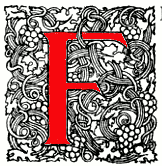 rom the beginning, Dickens’s writing was formed and informed by the (re-)creative processes of adaptation. His novels were published serially in installments then as bound volumes, illustrated, excerpted and rearranged for public readings by Dickens and other professional elocutionists. They were pirated and parodied, appropriated for production in theatres within and beyond the English-speaking world. His characters and stories have been translated and transported, across cultural and linguistic boundaries, across time and space, and across all forms of media. Even now, a century and a half later, Dickens’s writing continues to generate images and imitations that both reflect and direct our critical and cultural engagement with Dickens as writer and as representative of his age.
rom the beginning, Dickens’s writing was formed and informed by the (re-)creative processes of adaptation. His novels were published serially in installments then as bound volumes, illustrated, excerpted and rearranged for public readings by Dickens and other professional elocutionists. They were pirated and parodied, appropriated for production in theatres within and beyond the English-speaking world. His characters and stories have been translated and transported, across cultural and linguistic boundaries, across time and space, and across all forms of media. Even now, a century and a half later, Dickens’s writing continues to generate images and imitations that both reflect and direct our critical and cultural engagement with Dickens as writer and as representative of his age.
With the support of the European Union’s Marie Curie program, London’s Brunel University is sponsoring a one-day symposium on Dickens and adaptation—the literary materials Dickens reworked in his own texts as well as the afterlives of Dickens’s work. We want to consider the role of adaptation in creating, interpreting, circulating, and sustaining Dickens’s texts beginning in the nineteenth century and moving forward into the future. Why and how is Dickens adapted? What are the challenges and rewards of adapting Dickens in different media and for different purposes and audiences? How do adaptations enhance or inhibit our engagement with Dickens?
We invite proposals for (20-minute) papers on any topic related to adaptive engagements with Dickens. Travel bursaries are available for doctoral students. Topics might include (but are not limited to):
- The adaptability (or not) of the Dickensian text
- Dickens’s novels as adaptations of other stories or texts
- The serialization and publication process as adaptation: how publishing practices shaped and reshaped Dickens’s texts
- Dickens—and others—adapting/editing texts for public readings in and after the 19th century
- Dickens’s novels adapted to the stage, screen, radio or television
- Visual images, Dickensian iconographies, illustrations, graffiti, advertising
- Advertising, promoting, and selling Dickens and his texts to new audiences
- Auditory adaptations: sound and song
- Prequels, sequels, rewrites, echoes, and revisitations
- Translation and the techniques (and challenges) of cross-cultural adaptation
- Updating and modernizing Dickens
- Adaptation as response, critique, or correction
- Teaching and assessment: the use of adaptation in the classroom
- Adaptation as creative or critical engagement
- The limits and possibilities of adaptation
The symposium will close with readings from a number of Dickensian adaptions.
Please submit abstracts (of no more than 500 words) to Marty Gould, Marie Curie Fellow, Brunel University: Marty.Gould@brunel.ac.uk. Abstracts should be submitted no later than 14 October 2017.
Related material
- Adaptations of Victorian Fiction in Drama, Cinema, and Television
- Chained: A Victorian Nightmare — Thirty Minutes into the Future? (A Virtual Reality Experience of Scrooge)
Last modified March 18, 2019